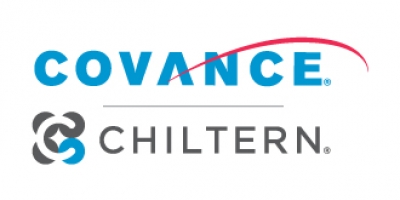Translation from Bench to Bedside, and Back
Drug-induced kidney injury continues to be an obstacle in the development of novel and safe drugs. This area has become even more complicated by the recognition of the need for kidney-targeted medications for diseases such as Chronic Kidney Disease and Diabetes. Classic biomarkers for drug-induced kidney injury, serum creatinine and urea nitrogen (BUN) are relatively insensitive and nonspecific in human patients and nonclinical species. Therefore, in drug development, novel biomarkers with improved sensitivity, as compared to BUN and creatinine concentrations, are needed for identification and characterization of kidney injury in nonclinical species and human patients. Novel translational biomarkers of drug-induced kidney injury in rats have been identified, developed and qualified by ongoing efforts through private-public partnerships. These translational biomarkers are being used to improve safety monitoring in nonclinical and clinical trials with the goal of attrition during the drug development process.
This webinar will provide an overview of translational biomarkers of kidney injury in rats that have been successfully qualified for the identification of drug-induced kidney injury in nonclinical studies. Featured biomarkers in this webinar will include examples of translational urinary biomarkers of tubular injury/induced synthesis (e.g., KIM-1 and clusterin), altered tubular function (e.g., cystatin C, microglobulins), glomerular injury (e.g., microalbumin, cystatin C, microglobulins) or production by inflammatory cells (e.g.,neutrophil gelatinase-associated lipocalin [NGAL]). Topics incorporated as part of this introduction to these translational biomarkers will include response to classic nephrotoxicants, correlation with histopathology findings, localization of biomarkers in the nephron and considerations for interpretation of biomarker data in rodent and non-rodent nonclinical studies.
This webinar is intended to introduce the participant to novel and emerging biomarkers of kidney injury that provide exciting opportunities to bridge nonclinical and clinical trials in the development of new therapeutic entities. Implementation of translational biomarker strategies in drug development provides opportunities to investigate efficacy in disease models, tools for identification of kidney injury in preclinical studies and safety endpoints for clinical studies.
Presented by

Michael D. Cressman, DO,
Senior Medical Director, CVMER (cardiovascular, metabolic, endocrine, renal) Group
Michael Cressman is a board certified nephrologist who has over 30 years of experience in clinical trials for cardiovascular, metabolic and renal disorders.
He is a former member of the professional staff of the Cleveland Clinic, associate professor of Medicine in the Center for Clinical Pharmacology at the University of Pittsburgh Medical Center and was chair of the Renal Safety Knowledge Group at AstraZeneca. His prior experience includes numerous interactions with the FDA and other regulatory agencies on a wide range of renal-related issues that are relevant to the clinical development process. Dr. Cressman joined Covance as a senior medical director in 2012.

Laura I Boone, DVM, PhD, Diplomate, ACVP, DABT,
Scientific Director of Clinical Pathology for Europe, Nonclinical Development, Covance Laboratories, Inc
Dr. Boone attended Texas A&M University where she received her BS, DVM, and PhD, and completed her clinical pathology residency. She has board certification from the American College of Veterinary Pathology (Clinical Pathology) and American Board of Toxicology (ABT). She currently serves as the scientific director of Clinical Pathology for Covance sites in Muenster, Germany and Harrogate, England. Prior to joining Covance, she was a project pathologist and toxicologist with Eli Lilly. Dr. Boone has been published in peer reviewed journals and presented at national and international pathology and toxicology meetings. Her areas of expertise and interest include clinical pathology and renal, hepatic, and hematopoietic toxicology.

Katherine T Landschulz, PhD,
Associate Director, Translational Biomarker Solutions, Covance Laboratories, Inc.
Dr. Landschulz received her BSc in Genetics from the University of California, Davis, and Ph.D. from Johns Hopkins University, Program in Human Genetics. She first joined the pharmaceutical industry in 1997 after completing postdoctoral training at Johns Hopkins University and the University of Texas, Southwestern Medical Center. At Pfizer, and then subsequently Abbott and Eli Lilly, Dr. Landschulz held a variety of roles in Discovery through Translational Medicine. Dr. Landschulz initially joined the Covance Biomarker laboratory in 2010 as principal scientist for Cardiovascular/Metabolic Disease Biomarkers. Since 2015, as Associate Director, Dr. Landschulz has managed and supervised all TBS biomarker services, including Immunoassay/Special Chemistry, Cell Biology/Flow Cytometry, and Clinical Pathology laboratories, and continues to guide biomarker selection and feasibility/validation consultation for the Cardiovascular/Metabolic Disease therapeutic area.






